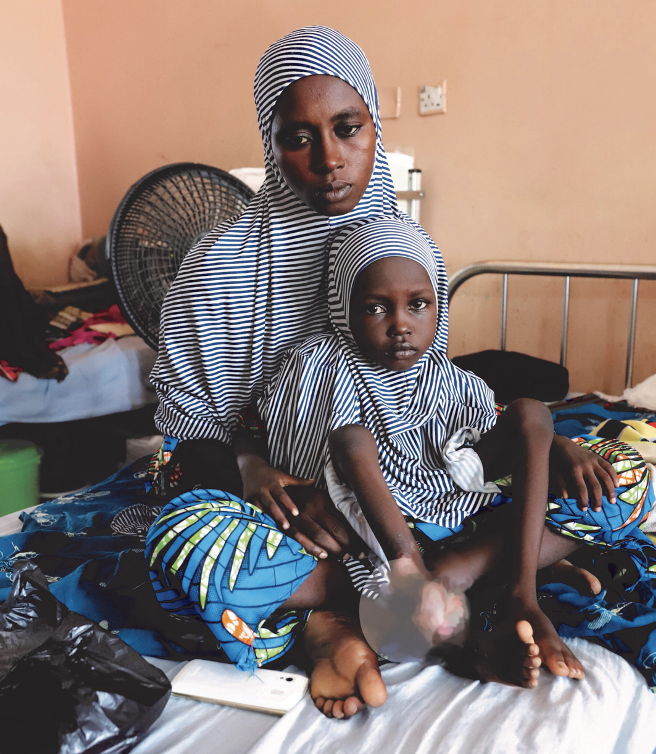FHI 360 Saves Zara’s Leg Through Urgent and Efficient Healthcare
AN IHAP+ 2 SUCCESS STORY
In 2020, six-year-old internally displaced girl Zara struggled with a painful leg tumor. Despite her family’s recourse to different medical and traditional remedies in Ngala, Northeast Nigeria and in Fokotol town, Logone-et-Chari Department, Far-North region of Cameroon, her leg’s situation did not improve. Doctors who had consulted Zara’s leg recommended that she undergo a surgery which included a possible amputation of the affected leg. Since the family lacked the financial means to get Zara operated, they continued to treat her leg at home, especially as they hesitated to get the leg amputated.
Zara’s leg condition worsened with time as her pain got increasingly severe, which deprived her of sleep and forced her to drop out of school. At the same time, her father relocated to Lagos to pursue a new job but the family lost contact with him. In the absence of a breadwinner for the family, their needs got increasingly critical. “We sold some of our food reserves to be able to afford medical treatment for Zara’s condition. We had tough times with no one to support us,” said Zara’s mother.
One year later, in 2021, Zara and her mother met aid workers of the International Organization for Migration (IOM) during activities conducted at the internally displaced persons’ (IDP) camp in Ngala.

They referred the little girl to the General Hospital in Ngala town, supported by FHI 360, where physicians consulted her leg and recommended that she undergoes a medical surgery. FHI 360 then referred Zara to aid partners in Maiduguri, who supported her treatment at the State Specialist Hospital. There they provided better treatment for Zara’s particular leg condition. FHI 360 also supported the family’s transportation from Ngala town to the State Specialist Hospital in Maiduguri and provided them with food assistance meanwhile. At the hospital, Zara’s condition progressively improved thanks to the treatment. Her leg was saved, and she has resumed going to school. The different and efficient referral actions between humanitarian organizations secured the right and needed treatment for Zara, which lasted about two months.
“If not for FHI 360’s intervention, I do not know the condition we would have been in since we had no money and no one to support us. I pray the Almighty to bless you to help more people in need,” said Zara’s mother.
Since 2017, FHI 360’s Integrated Humanitarian Assistance to Northeast Nigeria (IHANN) project, funded by the USAID’s Bureau for Humanitarian Assistance (BHA), has significantly supported IDPs’ access to primary and reproductive healthcare, and their provision with health outreach services in conflict-affected areas. The project aims to mitigate and respond to health challenges in Bama, Banki, Damasak, and Ngala towns, in Borno state, with the ongoing challenging humanitarian situation in the north-east.
FHI 360 strives to continuously provide care and support to IDPs across its projects. Additionally, with appreciation to effective collaboration and coordination between humanitarian partners, more people are being supported and positively impacted across Borno state.



